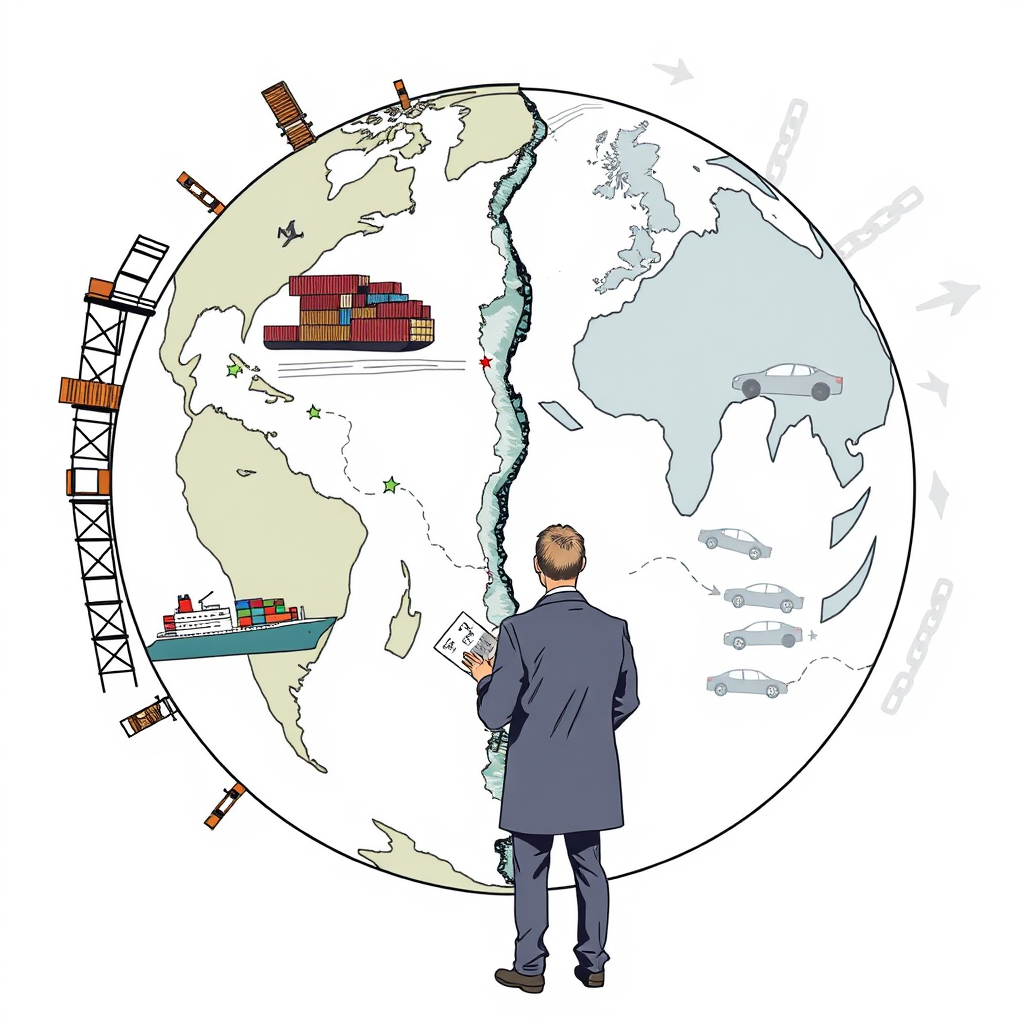Starmer Admits Globalization Failed Amid Trump Tariffs

UK Prime Minister Set to Acknowledge Failure of Globalization Amidst Trump’s Trade War
London – British Prime Minister Keir Starmer is preparing to deliver a landmark address acknowledging the limitations of globalization, a shift prompted by the escalating trade war initiated by US President Donald Trump’s protectionist policies. According to reports, Starmer will concede that the era of unfettered free trade has not benefited all voters and will recognize the appeal of Trump’s economic nationalism.
The Prime Minister’s speech, scheduled for Monday, comes as Trump’s newly imposed 10% baseline tariffs on imports have sent shockwaves through global markets. While the UK government does not endorse Trump’s tactics, a senior official, cited by The Times, admitted a fundamental shift is underway. “Trump has done something that we don’t agree with, but there’s a reason why people are behind him on this. The world has changed, globalization is over, and we are now in a new era,” the official stated.
Starmer’s address marks a significant departure from traditional pro-globalization rhetoric. He is expected to acknowledge the widespread perception that the benefits of globalization have not been evenly distributed, fueling discontent and contributing to the rise of populist sentiment. The speech will be his first major intervention since Trump’s tariffs took effect, and will outline the need for a new economic strategy focused on boosting growth through supply-side reforms.
The UK government is already signaling a proactive response, with plans to announce pro-growth measures later this week, including easing regulations for electric car manufacturers and accelerating elements of its industrial strategy. Efforts to secure new trade agreements with India and Australia are also being prioritized, with an “economic and financial dialogue” with India scheduled for Wednesday.
Trump’s tariffs, which went into effect Saturday, have triggered retaliatory measures and plunged global markets into uncertainty. The US President claims the levies will attract trillions of dollars in investment, despite widespread criticism. Specific countries face particularly high tariffs, including Lesotho (50%), Cambodia (49%), and Madagascar (47%). Trump himself proclaimed the situation an “economic revolution” on social media.
The escalating trade war prompted a conversation between Starmer and French President Emmanuel Macron, who agreed that a trade war serves no one’s interests. They emphasized the need to keep businesses informed of developments and discussed the broader economic and security implications, particularly in Southeast Asia.
The two leaders also discussed ongoing efforts to build a coalition to support Ukraine, including potential peacekeeping forces should a ceasefire be reached.
Analysis: Starmer’s anticipated acknowledgement of globalization’s shortcomings is a pragmatic, if belated, response to a changing world. While globalization undeniably fostered economic growth and interconnectedness, it also created winners and losers, leaving many feeling left behind. The rise of Trump, and the appeal of his protectionist policies, is a symptom of this discontent. Starmer’s speech represents a necessary recalibration, acknowledging the need for a more inclusive and equitable economic model. The challenge now lies in translating this acknowledgement into concrete policies that address the legitimate concerns of those who have not benefited from globalization, while also navigating the complexities of a fractured global trading system. The UK’s pursuit of new trade deals, coupled with domestic reforms, will be crucial in charting a course towards a more sustainable and resilient economic future.